Page 9 • (144 results in 0.036 seconds)
-
Caring for God’s gift of biodiversity Conservation of the Earth, its animals, plants and resources isn’t only the right thing to do, but it’s how God intends for men and women to tend to His creation. That will be the gist of a lecture –…
attended Union Theological Seminary in New York for his masters. He received his bachelors of arts degree from Earlham Collage in Indiana. He will publish the article “Thinking Globally and Thinking Locally: Ecology, Subsidiary and Multiscalar Environmentalism” in the Journal for the Study of Religion in 2008. He has spoken extensively on environmentalism and spirituality, including a lecture in May titled “Can Sacramentalism Save Biodiversity?” that was presented at the American Academy of Religion
-
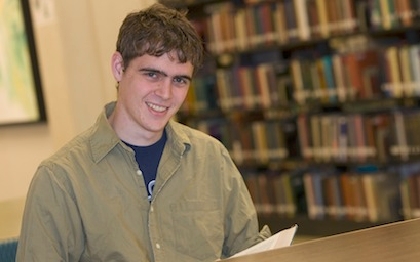
Helping those in need is a moral imperative, not necessarily a religious one How did Harold Lerass come to believe self-sacrifice is a moral imperative, not just a religious one? In this world, there are many people who need help, and for PLU student Harold…
subscribe to any faith, but if you were to label him, the best term may be humanist. “I don’t think you have to be religious to be moral,” Leraas said. Whether it’s Gandhi, Buddha or Christ, the approach of self-sacrifice to help others is a mission Leraas believes more people should adhere to. The pre-med major has spent time overseas in Trinidad and Tobago, as well as Mali. In Mali, he worked in a Leprosy clinic. The disease may be something of a rarity in the U.S., but in a third-world country it’s
-
A student messaged me on my Facebook page the other day with an article on college rating systems. Along with messaging her back my response, I thought to share my opinion here with you. Hi President Krise, I’m eager to hear your thoughts on this…
most famous to the most focused on local needs–indicates that this is a risky proposal. America has the world’s finest system of higher education–no one else comes close. Imposing a rankings system tied to funding is almost certain to weaken one of our strongest sectors of society. Two books that are worth reading to understand why highly trained personal services like higher education, health care, legal services, and live performances cost what they cost are: The Cost Disease by William Baumol
-
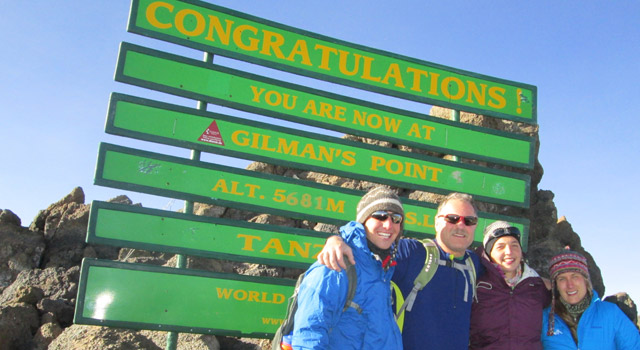
Anthony Markuson ’14, Bill Pursell (Kelsie Leu’s uncle), Anna McCracken ’13, and Leu ’13 summited Mt. Kilimanjaro to celebrate the end of their study away experiences. One step at a time By Chris Albert The guides up the mountain keep a cadence of “pole, pole”…
will call me back.” Last spring, the three friends realized they were all going to be studying in Africa for the fall semester. McCracken had plans to travel to South Africa to study social and political transformation. Leu would be in Zanzibar, where she would study coastal ecology and work on a waste-management program. Markuson, who intends to go to medical school after graduation, would be in Botswana where he would work on community health issues. Africa is a big place. But they knew they had
-

In high school, Rebecca Crust (19’) volunteered at a community farm in Seattle which increased access to fresh produce for the local neighborhood. “I was just, you know, a kid out of high school who really liked gardening.” Naturally, as a first year biology student…
love for the Community Garden continued. The hobby grew into a passion, and after studying plant disease with biology faculty, Rebecca decided to pursue plant pathology. They’re currently at the University of California Riverside getting their PhD. Working with the Diversity Center helped Rebecca grow beyond the garden too. Rebecca values the Diversity Center for giving them a working understanding of gender theory and social justice, which helped them incorporate equity into their work after PLU
-
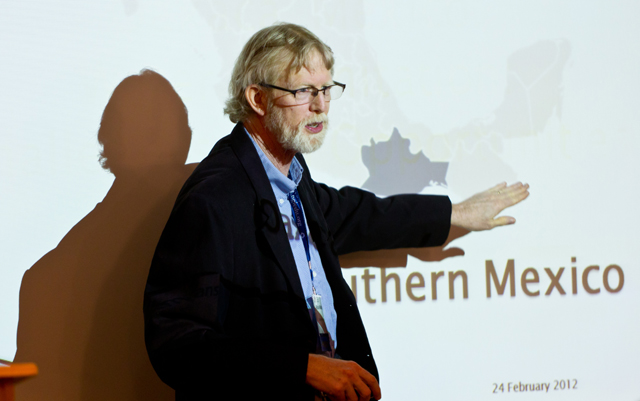
Rick McKenney, Executive Director, Water for Humans, speaks about water issues in Oaxaca, Mexico. (Photo by John Froschauer) Suffering from Water in Oaxaca By Katie Scaff ’13 We all need water, said Rick McKenney, executive director of Water for Humans. McKenney kicked off the second…
take on projects that improve public health and reduce disease. “We feel there’s plenty of water, we just need to capture it and use it correctly,” McKenney said. McKenney highlighted three of their current projects in Oaxaca, Mexico in his discussion Friday morning. The projects include building 8,000-gallon rainwater catchment systems as part of a rainwater harvesting program in the Bravo Ahuja district of Oaxaca, creating a wetland for sewage treatment in Santo Domingo Barrio Bajo Etla, and
-
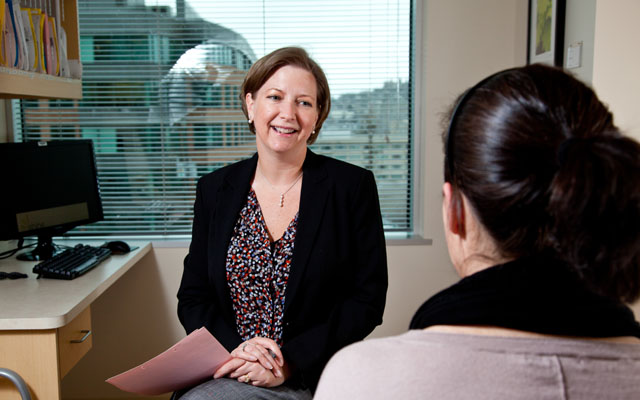
Photo by John Froschauer Dr. Jennifer Specht ’94 A passion for research and the needs of her patients By Barbara Clements It comes down to a series of small steps, fleeting encounters, or choices that may not seem significant at the time , but in…
graduation, she worked as a research fellow at the National Institutes of Health in Bethesda, M.D., and returned to the University of Washington and Fred Hutchinson Cancer Research Center where she completed her residency and fellowship training. Specht was recruited to the faculty in 2006. She absolutely knows she’s found a right fit for her passion. “I work with talented, brilliant, and compassionate colleagues, and the women who fight this disease are truly inspirational.” Read how Dr. Greg Aune ’97
-
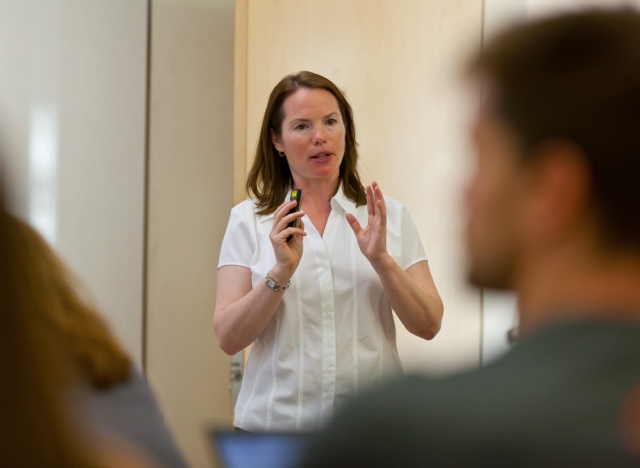
Visiting Assistant Professor Rosalind Billharz teaches a nursing class on pathophysiology this summer at PLU. (Photo by John Froschauer) A champion for microbes By Barbara Clements University Communications Everyone, or thing, however small, needs a champion. And for the microbes of the world, they certainly…
summer. Get her going on microbes, be in those that caused the Spanish influenza outbreak in 1918 or a more obscure disease named after distant relative Theodor Maximilian Bilharz (yes, with one “l.”) The affliction named by and for Bilharz involves a worm that will wreak havoc on your liver once it burrows into your skin. http://www.youtube.com/watch?v=0_umhIvhQC4 Bilharziosis is usually picked up in African or Asian countries by walking through standing water. If you like, she’ll show you a stained
-
Regents discuss accreditation, tuition, campaign The Board of Regents’ winter 2008 meeting kicked off on with the groundbreaking ceremony for the Martin J. Neeb Center, future home to KPLU and PLU’s development office. At the evening banquet, the first recipients of the Carol Sheffels Quigg…
activity included presentations by Academic Affairs, Budget and Finance, Development and Student Life. Read Previous Conference unites art and religion Read Next Area leaders discuss fighting disease worldwide COMMENTS*Note: All comments are moderated If the comments don't appear for you, you might have ad blocker enabled or are currently browsing in a "private" window. LATEST POSTS Caitlyn Babcock ’25 wins first place in 2024 Angela Meade Vocal Competition November 7, 2024 PLU professors Ann Auman and
-
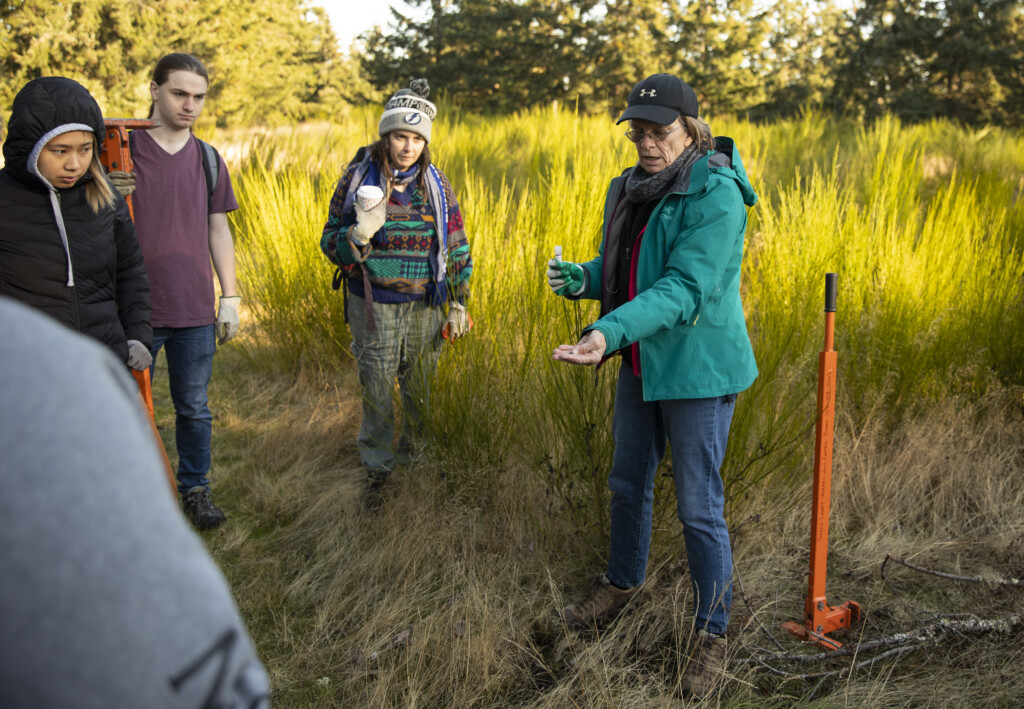
Why biology at PLU? “There has never been a dull moment with this major. Whether it be in lecture or during a lab, I know I will gain knowledge and experiences that will only uplift my time at PLU. I will be honest, it can…
courses in ecology and evolution, cell structure and function, and physiology have given me a broad foundation of understanding that I can carry forward with me into my future work.” – Daniel What skills are you learning? “There are tons of skills that I have been able to gain during my time at PLU, and there are so many opportunities to learn new ones too! Some very important skills I have gained are teamwork and leadership. Through my job working for the biology department, and other clubs and
Do you have any feedback for us? If so, feel free to use our Feedback Form.


